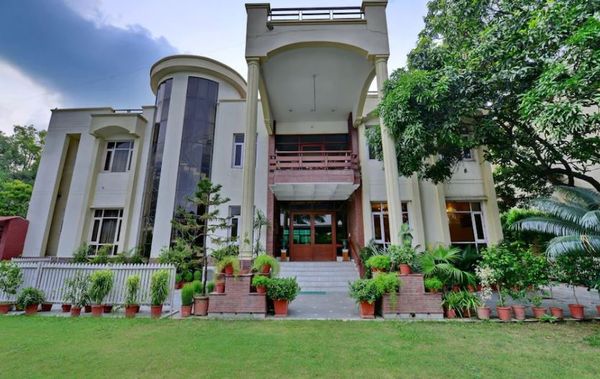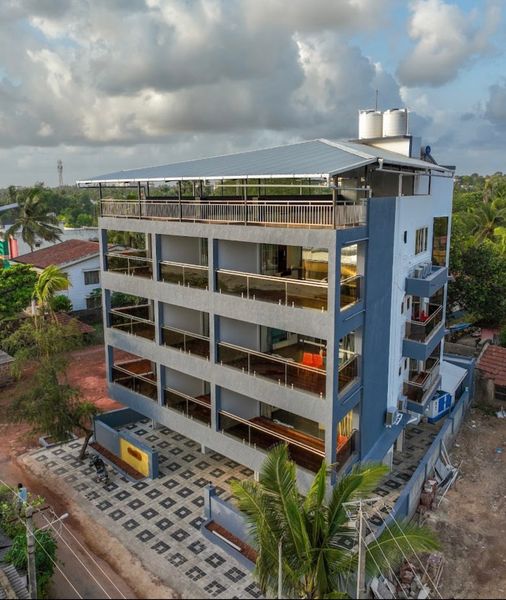How to Study Abroad: A Step-by-Step Guide
 Ron Johnson
20 May, 2025
8 mins read
8
Ron Johnson
20 May, 2025
8 mins read
8

One of the most rewarding educational opportunities available to students is studying overseas. It offers a special chance to experience a different culture, broaden your horizons, and advance your intellectual and personal development. Studying abroad can change your life, regardless of whether you are lured to it by the promise of professional prospects, cultural diversity, or prominent institutions. But the procedure calls for thorough preparation, investigation, and dedication. We'll take you step-by-step through this guide to help you make your dream of studying abroad a reality.
Establish Your Objectives and Pick the Correct Location
Think about your goals for studying overseas before you start filling out forms and applications. Are you seeking exposure to a particular sector, specialized academic programs, immersion in a language, or top-notch education? Your selections will become more limited if you make your aims clear.
After determining your goals, start looking at nations and organizations that share your interests. Take into account the cost of living, cultural differences, language hurdles, visa requirements, and post-study employment rights. Due to their excellent academic standards and support networks, nations like the USA, UK, Canada, Germany, New Zealand, and Australia are well-liked by international students. Keep in mind that admission standards, tuition costs, and program lengths differ greatly among schools.
Examine Academic Programs and Requirements for Applications
After you've selected one or two nations, learn more about the particular universities and programs they provide. Compare courses, instructors, internships, and campus amenities. Rankings are useful, but don't depend only on them; instead, consider how well the program fits your objectives and interests.
Admission requirements will vary by university. Academic transcripts, letters of recommendation, a statement of purpose, and results from standardized tests (such as the GRE, SAT, TOEFL, or IELTS) are usually required. Additionally, certain universities may require entrance examinations or portfolios. Reviewing reliable NCEA past papers will help you gauge your preparedness and get ready for comparable academic requirements elsewhere if you're applying from New Zealand. The collection of these documents must begin well in advance of the application deadline, which may be six to twelve months prior to the start of the program.
Making a budget and looking into scholarships
Budgeting is crucial because studying overseas can be costly. Daily expenses, travel, lodging, health insurance, and tuition costs can mount up. Start by projecting your annual expenses and contrasting them with your available funds. Add in unstated charges like as language tests, visa application fees, and post-arrival setup fees.
Fortunately, overseas students have access to a wide range of financial and scholarship opportunities. Verify whether the school you are interested in provides need- or merit-based scholarships. Additionally, look into financial aid programs, private grants, and government-funded scholarships in both your home and destination countries. In certain nations, it may be possible to work part-time while you are a student, providing both professional experience and financial assistance.
Get Ready for the Visa and Application Process
Before the deadline, submit your application after all of your paperwork are ready. While some colleges have individual portals, others use centralized application platforms. Pay close attention to the instructions; if you skip any, your application may be denied or delayed.
You must start your student visa application as soon as you receive your offer letter. Proof of admittance, financial stability, a current passport, and occasionally police or health clearance certifications are required for this process. Because visa processing might take weeks or even months, be ready for any interviews and keep a close eye on the deadlines. At this point, you might also need to make travel arrangements abroad, buy health insurance, and reserve lodging.
Prepare for Travel and Adjustment Abroad
Now that you have your visa, it's time to be ready to move. Create a list of the necessary documents, including your passport, visa, emergency contacts, admittance letters, trip tickets, and insurance documents. Consider the weather, baggage restrictions, and any electronics or adapters you'll need when packing. For convenient communication when you arrive, think about purchasing a local SIM card or an international phone package.
Make an effort to get in touch with other students or graduates from the school of your choice before you depart. Participate in student forums and orientation activities to get acclimated to a new setting. Anticipate a period of cultural adjustment after you're overseas. It's normal to feel overwhelmed at first, but you may eventually adjust to the new academic system, social conventions, and lifestyle if you have an open mind and take initiative.
Studying overseas can be a fulfilling and life-changing experience, but it also demands careful planning and well-informed choices. Every stage of your overseas education experience, from picking the ideal location to handling money and adjusting to a new culture, is vital. You'll be more prepared to manage the challenges and optimize the advantages of studying abroad if you adhere to these detailed instructions. The world is waiting for you to take the risk and begin organizing your international academic journey.
Written By:
Ron Johnson



Hotels at your convenience
Now choose your stay according to your preference. From finding a place for your dream destination or a mere weekend getaway to business accommodations or brief stay, we have got you covered. Explore hotels as per your mood.


